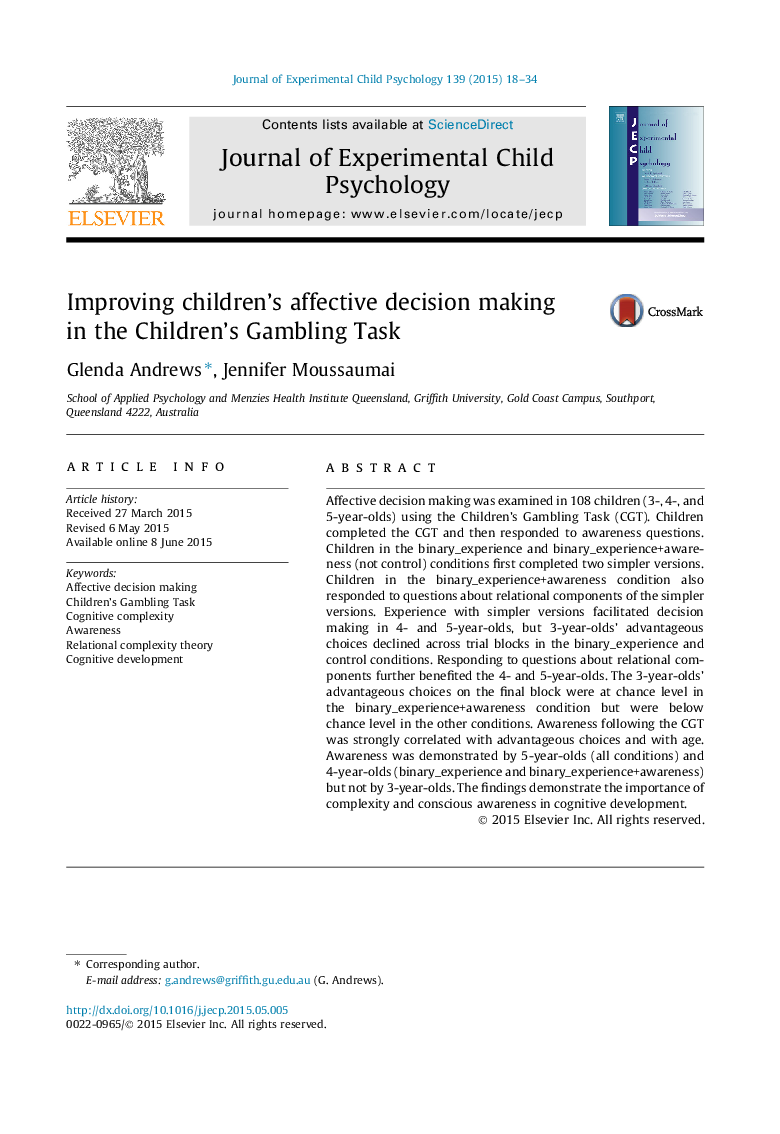| Article ID | Journal | Published Year | Pages | File Type |
|---|---|---|---|---|
| 917946 | Journal of Experimental Child Psychology | 2015 | 17 Pages |
Affective decision making was examined in 108 children (3-, 4-, and 5-year-olds) using the Children’s Gambling Task (CGT). Children completed the CGT and then responded to awareness questions. Children in the binary_experience and binary_experience+awareness (not control) conditions first completed two simpler versions. Children in the binary_experience+awareness condition also responded to questions about relational components of the simpler versions. Experience with simpler versions facilitated decision making in 4- and 5-year-olds, but 3-year-olds’ advantageous choices declined across trial blocks in the binary_experience and control conditions. Responding to questions about relational components further benefited the 4- and 5-year-olds. The 3-year-olds’ advantageous choices on the final block were at chance level in the binary_experience+awareness condition but were below chance level in the other conditions. Awareness following the CGT was strongly correlated with advantageous choices and with age. Awareness was demonstrated by 5-year-olds (all conditions) and 4-year-olds (binary_experience and binary_experience+awareness) but not by 3-year-olds. The findings demonstrate the importance of complexity and conscious awareness in cognitive development.
